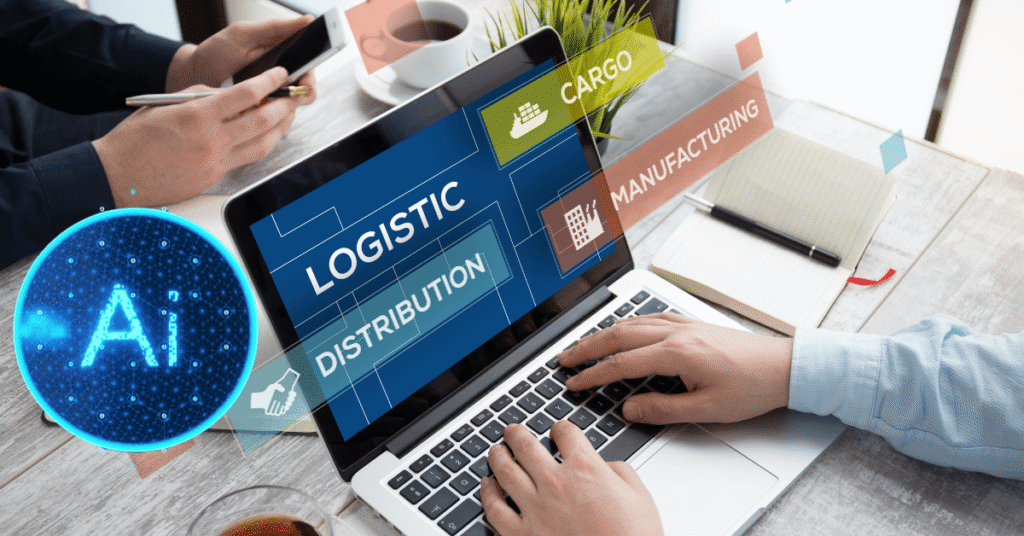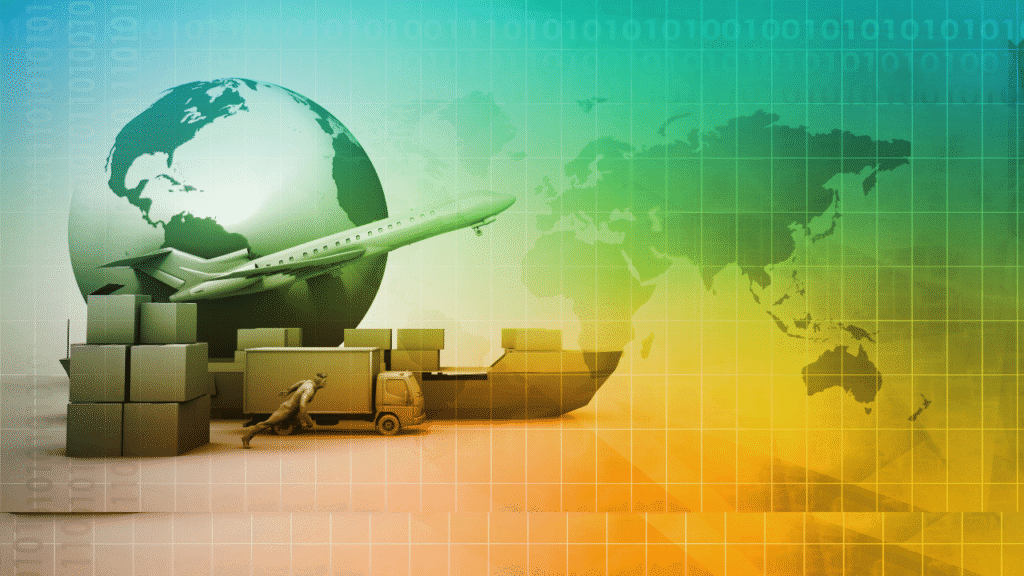Amidst the changing digital environment, the entire logistics industry is updating itself with an AI revolution within its own.” Strictly speaking, AI logistics software automates the decision-making processes used to train and improve supply chains. This AI logistics software will be fitted into a mainstream software tool for businesses worldwide, from smart routing to warehouse automation.
What Is AI Logistics Software?
AI logistics software uses artificial intelligence to control, modify, and execute logistics processes. These AI systems apply machine learning, predictive analytics, natural language processing, and real-time data use for operational efficiency in inventory management, transportation planning, and order fulfillment.
Key Features of AI Logistics Software
1. Route Optimization
AI-based software analyzes real-time data related to traffic, weather, and road conditions to assess the best delivery routes while keeping fuel costs and delivery delays in consideration.
2. Demand Forecasting
AI logistics software analyzes historical trends along with current market data to predict customer demands, which would help the business in general with stock and avoid situations of stockouts or overstocking.
3. Inventory Management
AI enables the monitoring of inventory levels, forecasting restocking needs, and eliminating inefficiencies in the warehouse through automated reordering and smart stock placement.
4. Shipment Tracking and Visibility
Incorporating AI capabilities within logistics software systems enables real-time shipment tracking and alerts concerning potential disruptions to ensure supply chain visibility.
5. Predictive Maintenance
Sensors together with AI algorithms monitor the delivery vehicles and machinery health and predict failures before they occur to minimize any downtimes.
Benefits of Using AI Logistics Software
- Better Efficiency: It helps to automate repetitive tasks and speed up decision-making.
- Saves Cost: Supports honest routing, resource allocation, etc., which in turn saves operational costs.
- Higher Accuracy: Contributes towards the reduction of human errors in order processing, forecasting, and inventory handling.
- Better Customer Experience: It helps ensure faster and more reliable deliveries with real-time status updates.
- Highly Scalable: Able to adjust to high volume and new logistical challenges with great ease.
Popular AI Logistics Software Solutions
The Top AI-Enhanced Logistics Software
Some companies that are now providing the best and modern AI logistics include:
- Locus-AI-based route optimization and field workforce management.
- ClearMetal (Project44)- Demand forecasting and inventory visibility.
- FourKites-Predictive supply chain visibility and analytics.
- LogiNext- Providing real-time tracking and automation of delivery.
- AI Logistics Software Use Cases by Industry
- Last-mile deliveries and seasonal demand spikes.
Automated supply chains from raw materials to components for manufacturing.
Best practices for fore-commerce fulfillment and reverse logistics.
Timely availability of medical supplies and equipment deliveries.
Conclusion
AI logistics software is clearly not a luxury anymore; it is a necessity for companies wishing to compete in the marketplace and stay afloat. Through the use of AI logistics software, with automated workflows and real-time data-driven insightful decisions, firms will quickly scale up their deliverables, cognitive capability, and sustainability. From large multinational corporations to fast-growing startups, AI logistics software will enable each to achieve new operational excellence horizons.
AI Logistics Software FAQ
Q1: What is the function of AI Logistics Software?
A1: Its main function is to leverage artificial intelligence in the automation and enhancement of certain logistics processes like routing, inventory management, and shipment tracking.
Q2: How does such software reduce delivery windows?
A2: It solves the problem of standing still for the driver when, by analyzing real-time traffic and weather data, the route deemed most efficient is computed.
Q3: Is this type of AI logistics software for small businesses?
A3: Certainly. Many of them develop inexpensive and inexpensive cloud solutions that can be scaled and used by any small and medium-sized enterprises.
Q4: What distinguishes logistics software from logistics software that uses artificial intelligence?
A4: In the traditional model, logistics dependencies would be set for “rule” or even manual control, while AI-based software offers real-time data with learning algorithms for dynamic decision-making.
Q5: Whereas AI logistics software help reduce carbon emissions?
A5: Absolutely. It optimizes routes based on factors of idle times; thus, it would cut back on fuel consumption, minimizing effects on the environment due to logistical operations.



